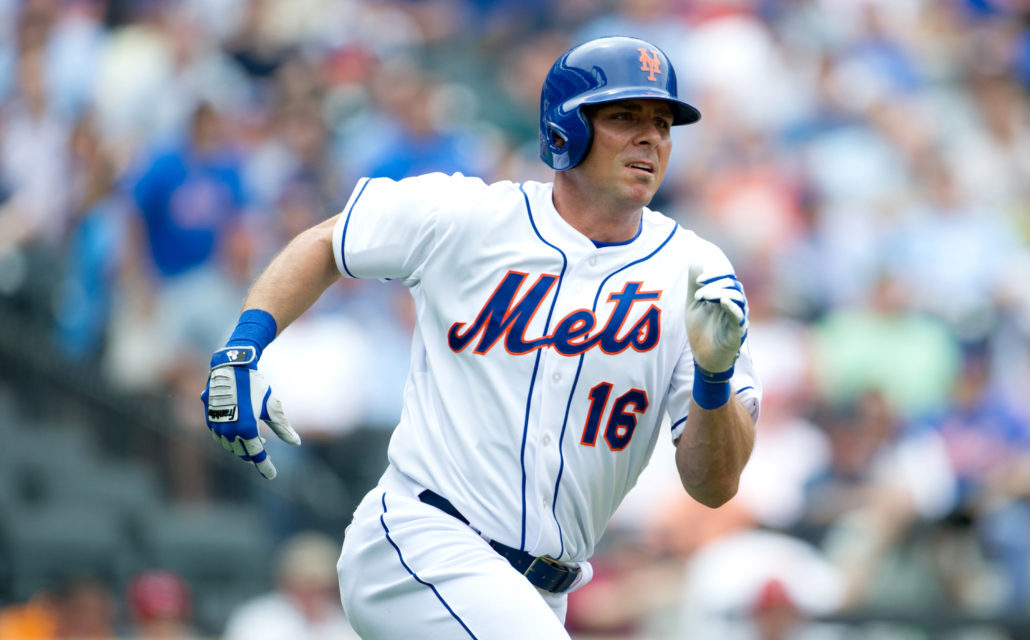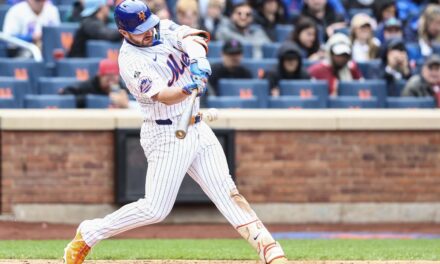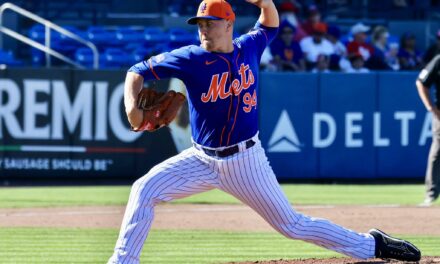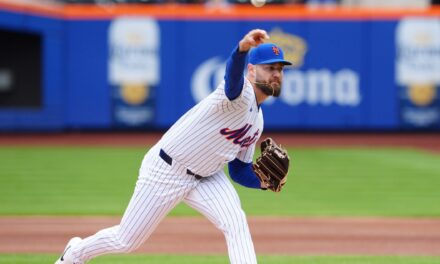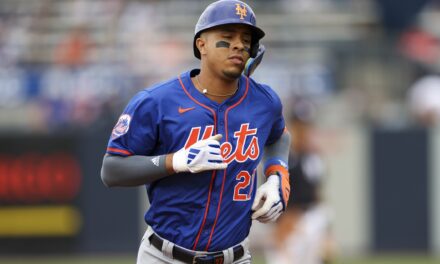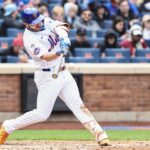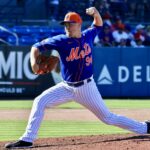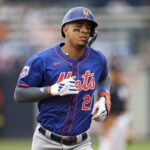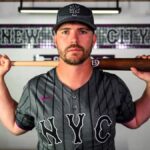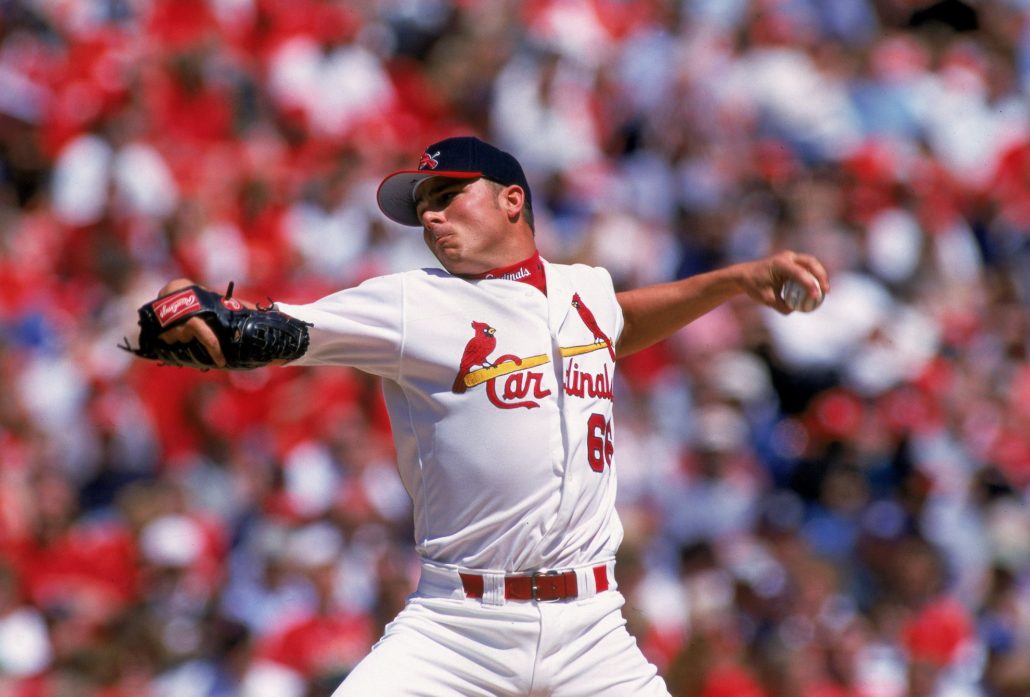
This wasn’t the way it was supposed to be for Rick Ankiel.
Gifted with a golden left arm that could blow hitters away with his mid-90s fastball or his wicked curveball, Ankiel was primed to be the next great starting pitcher for years to come.
Selected in the second round of the 1997 MLB Draft by the St. Louis Cardinals, Ankiel had only one thought: to be the very best in the game.
Ankiel burst onto the scene and shot through the Cardinals’ minor league system, posting a 2.63 ERA with a 12.4 strikeouts-per-nine in his rookie season in ’98, followed by an even better ’99 season with a 2.35 ERA and 12.7 strikeouts-per-nine.
He would make his major league debut on August 23 of that year, tossing five innings and allowing three runs on five hits with six strikeouts against the Montreal Expos.
Ankiel began the 2000 season with the big club and finished second in the NL Rookie of the Year voting behind Atlanta Braves shortstop Rafael Furcal. The lefty went 11-7 with a 3.50 ERA in 175 innings, and led all rookie pitchers in innings pitched, strikeouts, and tied for first in fWAR.
It was a terrific start to a promising career that had the baseball world excited to see what this 21-year-old kid could do next.
Fast forward to Game 1 of the NLDS against Ankiel’s favorite childhood team, the Atlanta Braves. Manager Tony La Russa tasked Ankiel with the assignment, and one Ankiel felt ready for. In fact, Ankiel’s last five starts of the ’00 season were fantastic: a 3-0 record with a 1.65 ERA over 32.2 innings with 40 strikeouts.
What happened next was unexplainable to Ankiel.
In the third inning of Game 1, Ankiel tossed five wild pitches to the Braves, losing the ability to throw strikes and perplexed as to why this was suddenly happening to him. Ankiel was sure this was just a simple mechanical issue that could be corrected, however, he appeared in two more games during the NLCS against the New York Mets and unleashed another four wild pitches.
That brought his postseason wild pitch total to nine.
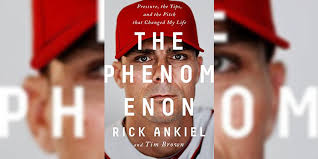
Ankiel details this and so much more in his new biography The Phenomenon: Pressure, the Yips, and the Pitch that Changed My Life.
The book is a raw, emotional, and personal glimpse at the life and career of a top prospect and his rapid descent. Ankiel’s life was a true roller coaster, filled with many highs and lows and with several twists and turns along the way. How he dealt with each obstacle and battled back to the majors as an outfielder is an inspiring story of hope and perseverance.
I had the privilege of speaking with Ankiel about his book, and touched on topics ranging from Game 1 of the NLDS, the yips and how he came back as an outfielder in 2007.
MMO: What made you write the book now?
Rick: When I went through all the throwing issues, I couldn’t really find much literature on it. On top of that, nobody really wanted to talk about it. Being that I made it to the other side of it and had a second career on top of that, I didn’t have a problem talking about it.
I realized that, not just in baseball, but professionally, people are going through things like this, and if my voice could inspire other people then it would be completely worth it.
I remember reading Lance Armstrong’s book about his battle with cancer when I was going through the throwing issues, and it inspired me. I felt like, if I could reach one person like that book reached me, then it would all be worth it. Certainly, to this point, all the feedback has been great and I’m glad I did it.
MMO: Was it therapeutic in a way to write the book and get your story onto paper?
Rick: Yes, very! The thing about it was, really talking about it and all the interviews were a lot more therapeutic than just writing the book. Writing the book, I guess there was some therapeutic stuff that I got from it, but not nearly as much as talking about it.
MMO: Who were some of your favorite players growing up?
Rick: I was a big fan of everybody who got there young. When I was young, and I’m talking eight to fifteen, was when I started to think, Hey man, I’d love to be a big-league ballplayer.
I’m looking at other guys getting there that are young and you talk about Griffey Jr., A-Rod or Andruw Jones.
I was a huge Braves fan so, of course, all those guys. But a lot of guys who got there young. I’m looking at these guys like I want to be that guy.
MMO: When you were going through the Cardinals system as a pitching prospect, and hearing your name listed as the top prospect in baseball, did any of that get to you and perhaps make it tougher on you from the start?
Rick: No, because that’s the guy that I wanted to be. I’m young and I want to be the best and my goal was to be one of the best players that ever played the game. What all those accolades did was just reinforce what I was trying to do in my goal. It really just gave me the motivation to keep working as hard as I was and work harder.
MMO: When did you first become aware of the yips?
Rick: You know, I’d seen other guys go through it. I remember seeing [Chuck] Knoblauch go through it and I just remembered thinking, God, what’s wrong with you? Just throw the ball, how hard can it be? Little did I know that, obviously, I was going to experience it and how hard it actually is.
MMO: Can you talk to me a bit about Game 1 of the NLDS in 2000? You were doing fine through the first two innings and then the third inning happened with the five wild pitches. Was anything off to you in the earlier innings or pre-game, or was it just the third where it went downhill?
Rick: No, just the third inning. I just remember thinking, What the hell is going on? I was so young I had no idea. I remember even saying to the media that this was a mechanical issue and it will never happen again.
Then I threw a bullpen in between that game and playing the Mets and I was lights out. Pinpoint control. I felt like, You know what? Whatever it was, it’s gone. I’ll be fine.
Obviously, coming out with the Mets the same thing happened again. That’s when I realized something’s wrong here.
MMO: From reading the book, it seemed after the playoffs you needed to reteach yourself to pitch. It must’ve been extremely difficult to have to remind yourself that you knew how to pitch, especially considering you dominated every level of competition you had previously played at.
Rick: The thing about it was before that happened, you could’ve said try to throw it sidearm and I’d throw it. I could’ve done anything I wanted and threw the ball exactly where I wanted to. Then once that happened, all the keys that had always got me back on track, whether it be lead with my hip or lead with my elbow, whatever it is, every pitcher has them and every hitter has them, [was not working].
Everything that had always worked to get me back on track was not working; I mean, not even coming close to working. I guess that’s the craziest part about it. It’s like, all of a sudden you know exactly who you are and what you want to do and how you’re doing it, to still knowing what you want to do but now nothing is working.
For whatever reason, your brain and your body will just not allow you to do it.
You’re exactly right. As much as relearning how to throw was now all of a sudden you’re dealing with all this negativity and anxiety. Now you’re having to reteach your brain how to think and how to coach yourself out there in those moments, and how to deal with the anxiety while you’re trying to compete.
It’s really just an overhaul of everything. It makes it really hard, that’s for sure.
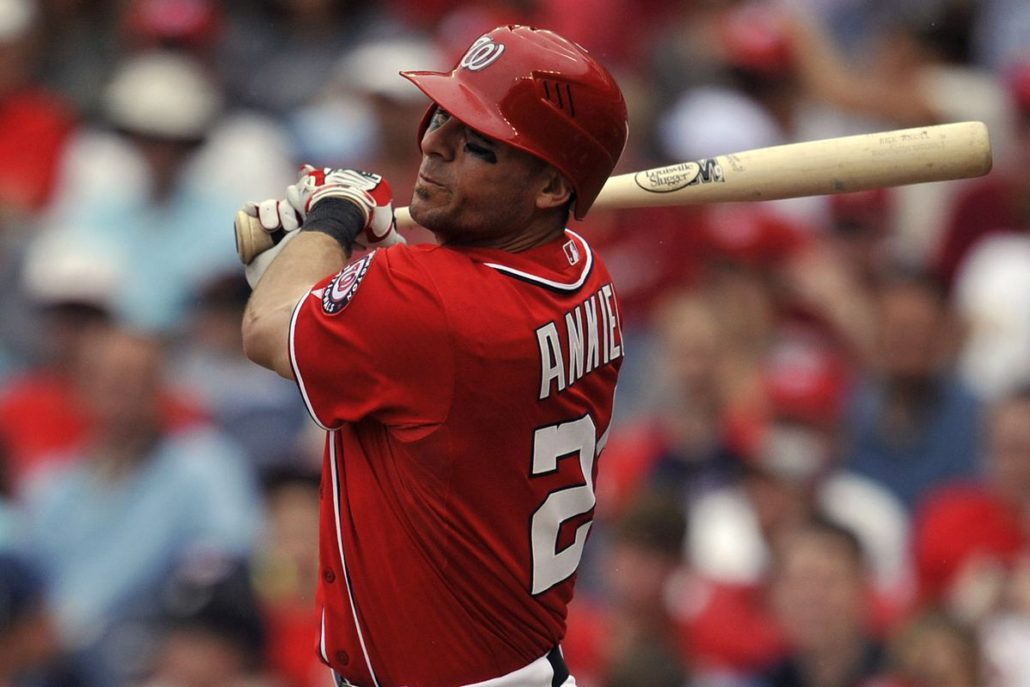
MMO: Two guys you speak highly of in your book were teammates Darryl Kile and Jim Edmonds. Can you talk a little about what they both meant for you and your development?
Rick: Darryl just took me under his wing. I was a kid from a small town in Florida and just green as the day is long. And not only was he teaching me about pitching, but about life and how to be a professional, and how to represent the Cardinals and the team that you’re playing for. I mean, he was a guy that I would go to about everything.
We went to dinner almost every night. We’d talk about pitching and we’d talk about life. We’d talk about anything. He really was a brother figure, that mentor figure that meant so much. I can’t thank him enough and obviously, it’s just sad that he passed and what happened there.
Now you move to Jimmy. It’s funny, because when you’re around somebody who’s really good as Jimmy was, and even without talking to Jimmy when you watched him play, every day you learn. Then when I did switch over to hitting, being able to pick his brain about, why did you play that guy here? Why did you move there in that count? What was your thought process and what are you trying to do there? That’s what he was for me as an outfielder.
I’m just thankful that I got a chance, that he was there and I got a chance to pick his brain. He was one of the best and I always felt like he was a little bit before his time.
Now you see all these shifts in the data and everything that comes with it. There were scouting reports back then but not nearly like we have now. He was already ahead of the game of why to move here and what to do in this count and why to do that. I’ve got to give him a lot of credit in helping me understand that side of the game.
MMO: Harvey Dorfman was another key mentor in your life, and you speak highly of him in your book. What did he mean for you and your career?
Rick: Harvey really became the father figure in my life. Not only did he help me with the mental side of the game, and everything that I mentioned before, but also dealing with the anxiety, how to compete, how to coach yourself and talk yourself in the moments of pressure. Our relationship blossomed into him being a positive male role model in my life.
It’s not that I want to compare one person against the other, but Harvey was the most influential all my life. Teaching me from on the field to off the field to everything that comes with it about being a young man and really functioning in society and being the person that I am today.
MMO: Your agent, Scott Boras, was the one who proposed that you convert from a pitcher to position player. Do you know how long that was in the works for? And what was your reaction to that news?
Rick: I didn’t actually know that they had planned this before I did it until I started to write the book. Then that came to light. At the time, they didn’t let me know that. I know that Scott was talking to Walt Jocketty and the Cardinals. I think their thing was he has to stop pitching on his own. And if that does happen, or when and if that does happen, we would let him try to come back as an outfielder.
I didn’t know any of that, so I actually don’t know what the time frame was, or how long Scott had talked to them about it. Thankfully, they were on board and I’ll always be thankful for the opportunity that they gave.
Back then, organizations really didn’t give people those chances, and if I was with a different organization, there’s no telling that I got the chance to make it back as an outfielder.
MMO: After working in the outfield in the minors for several seasons, you make your debut in right field on August 9, 2007, at home against the San Diego Padres. You collected your first hit as an outfielder in the 7th inning; a 3-run home run to right. Talk to me about that moment and what you were feeling rounding the bases.
Rick: Just amazing! The day really started when I got to the clubhouse and I had to fly from Tacoma into Memphis, and then drive from Memphis to St. Louis. When I got there everybody was already there.
I missed BP and when I walked into the clubhouse, just the high fives and the hugs from all the guys and the welcome backs. It was amazing. And in some ways, that moment would’ve been worth it in itself.
Then we fast forward into the game and into the seventh inning, I remember I’m facing Doug Brocail, I’m in a 2-1 count and he throws me a curveball or slider and I get barrel on it. I know it’s not an upper-deck shot, but I know this definitely has a chance. I’m looking at the ball, looking at the right fielder trying to judge if it’s going to be a home run or not or where it’s going to hit.
All of a sudden, when I realize that it was going to be a home run, I just had these flood of emotions come over me that’s hard to even explain. I felt like my whole body went numb; it was almost as if I were rounding the bases on a magic carpet, just floating around there.
I get to the dugout and all my teammates are going crazy, and then you get that curtain call and the fans are going crazy. The energy that I felt is just indescribable and one of those magical moments that I’ll never forget.
MMO: Who was the toughest pitcher you faced?
Rick: Oh man, you know, there are a bunch. Somebody you probably wouldn’t know; I remember being in the N.L. Central we faced Milwaukee a lot and there was this left hander by the name of Brian Shouse. I don’t think he even broke 80!
He threw sidearm and it wasn’t just me, every left-handed hitter we had, I don’t think we ever got one out of the infield the entire ’08 season. I tried everything you could think of: open stance, closed stance, different bat, lighter bat, heavier bat.
I never got one out of the infield!
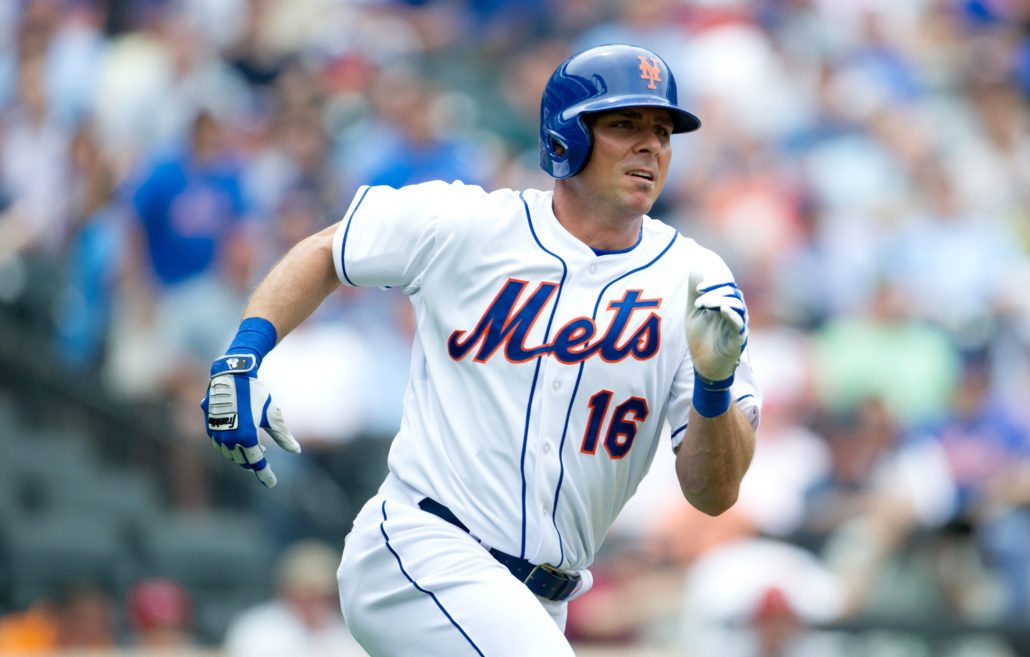
MMO: You spent a brief time with the New York Mets in 2013. What were your thoughts on New York and your time spent there?
Rick: I liked New York. Obviously, I grew up in Fort Pierce, and Port St. Lucie right there where the Mets spring training is, so in a lot of ways I was really familiar with the uniform and the organization.
I wish we would have been a winning team and we weren’t that year. There were a lot of veterans on the team and I just came from Houston where they were so young and I don’t think that team understood how to be a big-league team yet. I felt like when I got there (N.Y.), it was a veteran team; we went out to dinner, we were on the same level and I enjoyed it.
I feel like, as a player, you always want to play in New York at least once and I’m glad I got to experience it. The biggest thing for me was the food, man. I loved the food in New York. I love the energy and I love the food, it’s amazing.
MMO: You spent a season as a life coach for the Washington Nationals after your playing career. What does someone in that role do? Is it talking with younger prospects and players and helping them through various situations?
Rick: Yeah, that’s exactly what it was. I’ll share my experiences on and off the field. You look at my career and say I have a lot to offer experience-wise. Whether that be personal stuff with the family or stuff I went through on the field. Trying to channel my inner Harvey Dorfman and the things he taught me and just give back to those kids in that role, the advice role, the mentor role.
I enjoyed it, I liked being around them. It was fun and it was one of those things that I’m glad I did it.
MMO: In the book, you discuss sitting down with former right-hander Steve Blass, who also went through the yips after having several successful seasons in the majors prior. What was that conversation like for you, and did it aid in helping you try to understand it more?
Rick: Yeah, it did. It was one of those conversations that are therapeutic. The same thing with everything that’s come from the book. I’m just sitting down talking about the things that we both experienced and what it did to both of us. How much it consumed us.
The thing is, you go through something like that and it’s not like you can just leave it at the field. You go home and I could be driving in my car and see a kid playing catch and think, Man, I wish I could do that again, it looks like it’s so easy for them.
All of a sudden, I’m flipping the channel on TV and see someone else throw and now I’m trying their mechanics. We just talked about those things and he did the same thing and it was therapeutic. It was interesting and I think the biggest thing that I even mention in the book is that we both knew what we went through and how hard it is and one of those things that are just tough to deal with.
MMO: Is there a moment or two from your career that stands out for you, or that you’re most proud of?
Rick: Both times I made it to the big leagues. Obviously, the first time, just because it’s a dream you always wanted. The second time because you talk about redemption and all the hard work and everything I’d been through to that moment.
A lot of the throws that I made, the home run I hit in the playoffs when I was with the Braves [Game 2 of the 2010 NLDS vs the Giants]. The interesting thing about that is, when I was in the pitching thing and went through the yips, it was against them, and that was my childhood team! I mean, I grew up watching the Braves and then my next time back in the playoffs just playing for the Braves and I hit an extra-inning walk-off home run.
And for Bobby Cox, who was one of my childhood heroes, and just one of those moments that’s hard to describe. It happens against them and all of a sudden I’m playing for them then I hit a home run. I think that home run was the pinnacle of my career when it comes to home runs.
MMO: At what point in your career did you come to peace with your pitching career and the yips?
Rick: Somewhere in that position playing career. I think, too, what happened is the fact that I made it back in ’04 [as a pitcher]. I pitched respectively and successfully at the end of that year, and I would say sometime then that I just came to peace with it. Like you know what, I made it back, I don’t have any more to prove with this, and then I was able to move on and switch to a position. So I would say once all that happened.
MMO: Thank you very much for your time today, Mr. Ankiel. Your book was really a tremendous read. Congratulations on all the success it’s garnered.
Rick: Thanks, man. I appreciate it.
You can follow Rick Ankiel on Twitter @TheeRickAnkiel


